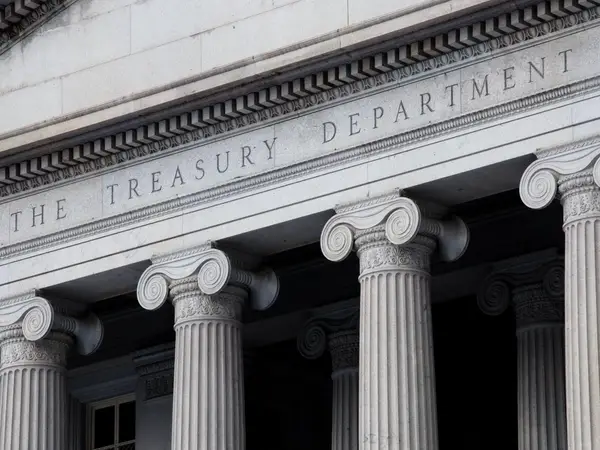The US Treasury on Tuesday imposed fresh sanctions against a vast "shadow banking" system used by Iran’s military to launder billions of dollars of oil proceeds and other illicit revenue.
In a statement on its website, the US Treasury said it is sanctioning "nearly 50 entities and individuals that constitute multiple branches of a sprawling 'shadow banking' network used by Iran’s Ministry of Defense and Armed Forces Logistics (MODAFL) and IRGC to gain illicit access to the international financial system and process the equivalent of billions of dollars since 2020."
"MODAFL and the IRGC engage in several commercial revenue-generating activities, most notably the sale of Iranian oil and petrochemicals," it added.
According to the statement, "networks of Iranian exchange houses and dozens of foreign cover companies under their control enable MODAFL and the IRGC to disguise the revenue they generate abroad that is then available to use for a range of MODAFL and IRGC activities, including the procurement and development of advanced weapons systems such as unmanned aerial vehicles."
The US Treasury says the revenue made through this network "also supports the provision of weapons and funding to Iran’s regional proxy groups, including Yemen’s Houthis, who continue a campaign of reckless attacks on global shipping, as well as the transfer of UAVs to Russia for use in its war of aggression against Ukraine."
Deputy Secretary of the Treasury Wally Adeyemo said the US is taking action against "a vast shadow banking system used by Iran’s military to launder billions of dollars of oil proceeds and other illicit revenue."
“We have sanctioned hundreds of targets involved in Iran’s illicit oil and petrochemical-related activity since President Biden took office, and we will continue to pursue those who seek to finance Iran’s destabilizing terrorist activities. We continue to work with allies and partners, as well as the global financial industry, to increase vigilance against the movement of funds supporting terrorism," Adeyemo said.
Iran's Defense Ministry "is responsible for development, production, funding, and logistics for all of Iran’s defense industries," according to the US Treasury. "Iran’s budget allots billions of dollars’ worth of Iranian oil to the Iranian armed forces to sell abroad in order to supplement their budgets."
On top of the list of sanctions is Iranian-Turkish money-changer Seyyed Mohammad Mosanna’i Najibi who, through his Iranian branch of business Sadaf Exchange, "has managed several currency exchange businesses in Iran and Türkiye in coordination with the MODAFL Supply Division for the purpose of bypassing US and European sanctions on Iran," the Treasury said.
Omid Sepah Exchange Company and Hekmat Iranian Exchange & Foreign Currency Services Company, and Iranian money-changers Asadollah Seifi, Ramin Jalalian, Reza Mir Mohammad Ali and Siavash Nourian are among other key individuals and entities sanctioned by the US Treasury on Tuesday.
The Treasury's OFAC says it has also designated 27 cover companies based in Hong Kong, the United Arab Emirates (UAE), and the Marshall Islands that are controlled by Najibi and used to obfuscate the MODAFL Supply Division’s international financial activity.
Iran's IRGC has utilized foreign currency exchange offices in Türkiye and Iraq as well as Hong Kong, among other countries, to circumvent US sanctions and fund its regional proxies.
Last year, the United States set a reward of up to $15 million for receiving information on the illicit financial network of Iran's Revolutionary Guard (IRGC).
"The IRGC uses numerous financial mechanisms to fund its activities, including front companies and other entities that help it bypass US and international sanctions," the US State Department said last year.
The Biden administration has already issued dozens of sanction designations on companies and individuals affiliated with the Revolutionary Guard in several countries.

